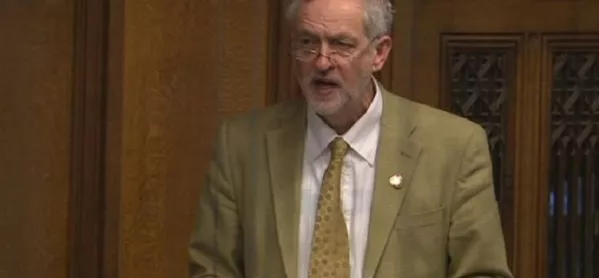Lucy Powell is an intriguing pick as shadow education secretary.
The first thing that is abundantly clear is that she is no Corbynista. Indeed, by her own confession, she had never met him as recently as a month ago. Her politics are much more within the mainstream of the Labour Party. She was a strong Andy Burnham supporter in the leadership contest and previously to that was a key part of Ed Miliband’s election team. Less well known is the fact that she is a vice-chair of Progress, the “uber-Blairite” group within the party, alongside others such as the former leadership candidate Liz Kendall.
Her time as shadow childcare minister also provides some clues as to her views. She was a strong supporter of Labour’s commitment to extend primary school opening hours to provide wrap-around childcare, where she welcomed the role that charities and other organisations could play. She has also spoken out about the need for early intervention in children’s lives, and for broader public service reform. Indeed, she made the brave (and correct) argument before the last election that there could be no return to huge and protected sums of money for early years and Sure Start, and that reform was needed to improve these services. I have also personally seen her skilfully bat off demands from the childcare sector for more money as the main solution to improving quality.
Her job will be to turn the broad Corbyn agenda on education into concrete policy, although she won’t have responsibility for some of the new leader’s most totemic commitments, most notably around abolishing all tuition fees and for free lifelong learning. But there is a lot to get her teeth into; including the perennial issues for Labour as to their positions on academies, free schools, and faith schools.
On these issues, as befits her approach to date, I would expect her to be deeply pragmatic. She will, as Labour’s senior education representative, continue to make the argument that new free schools where they are not ‘needed’ will be a waste of money, and that there needs to be greater oversight of all schools, including academies, at a local level. She will also continue to oppose the government’s Education and Adoption Bill currently making its way through the House of Commons, which promises to significantly increase academy numbers, and we can expect her to repeat the position that there is no statistical difference between the results of academies and those of local authority maintained schools.
You can expect her to talk increasingly in the next year or two about teacher shortages, and about school funding getting tighter. As a touchstone issue for many within the Labour party, she may formally commit to - or hint at - bringing all existing free schools (and much less likely, all academies) under local government control. And when November’s Spending Review, as it will almost inevitably do, sets out more cuts for early years and 16-18 education, then she will be strongly against that.
But beyond the immediate legislative battles, the carefully chosen and symbolic differences of policy, and the job of the opposition to hold the government to account on a daily basis, I would not expect as violent a change of trajectory as in some other areas (on defence, for example, or on the economy). I expect her to be the tenth Labour secretary of state or shadow in a row to affirm their commitment to the principle of academies and school and headteacher autonomy. I don’t believe she will call for the nationalisation of private schools or the abolition of faith schools. She will not commit to scrapping Ofsted.
There will certainly be a few new eye-catching policy commitments, made easier by Labour’s new looser rules on public spending. For example, she may seek to fund free, high-quality, universal childcare via a tax rise on businesses, she may commit to a large-scale increase in teacher pay, she may resurrect something like Building Schools for the Future, or she may look to develop Labour’s emerging thinking on scrapping GSCEs and boosting vocational training as part of a completely revamped 14-19 curriculum.
But in overall policy substance (as opposed to tone), I wouldn’t be surprised if there wasn’t a world of difference in Labour’s new approach from that of her ex-boss Tristram Hunt. What a relief/what a shame - delete as is your preference.
Jonathan Simons will write a weekly column in TES magazine from 2 October on education policy




